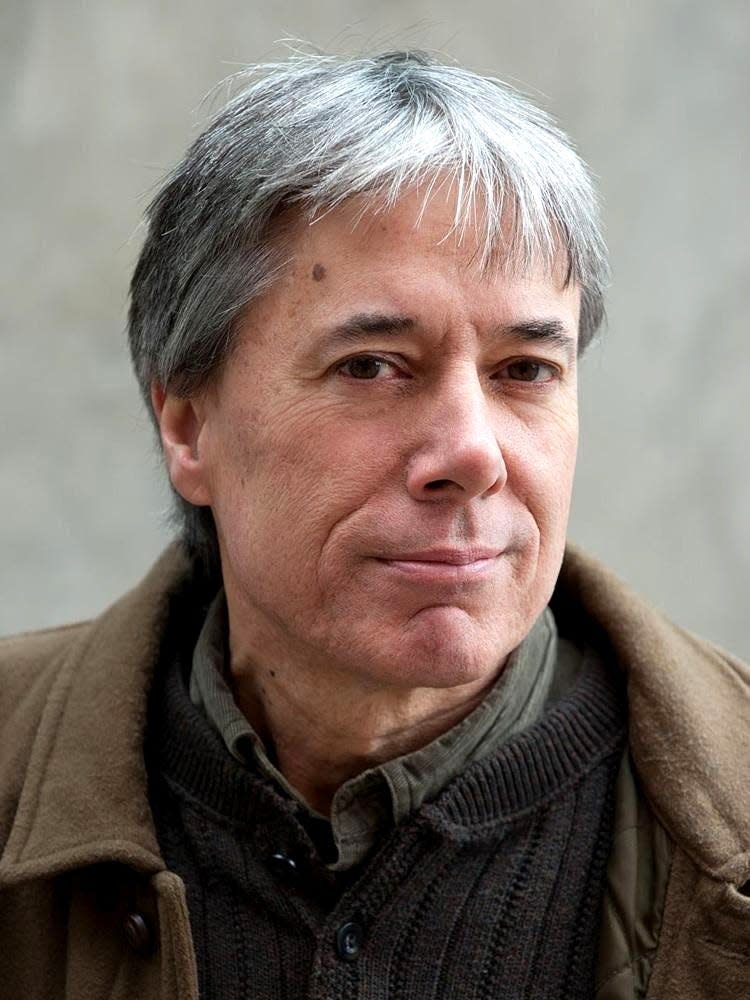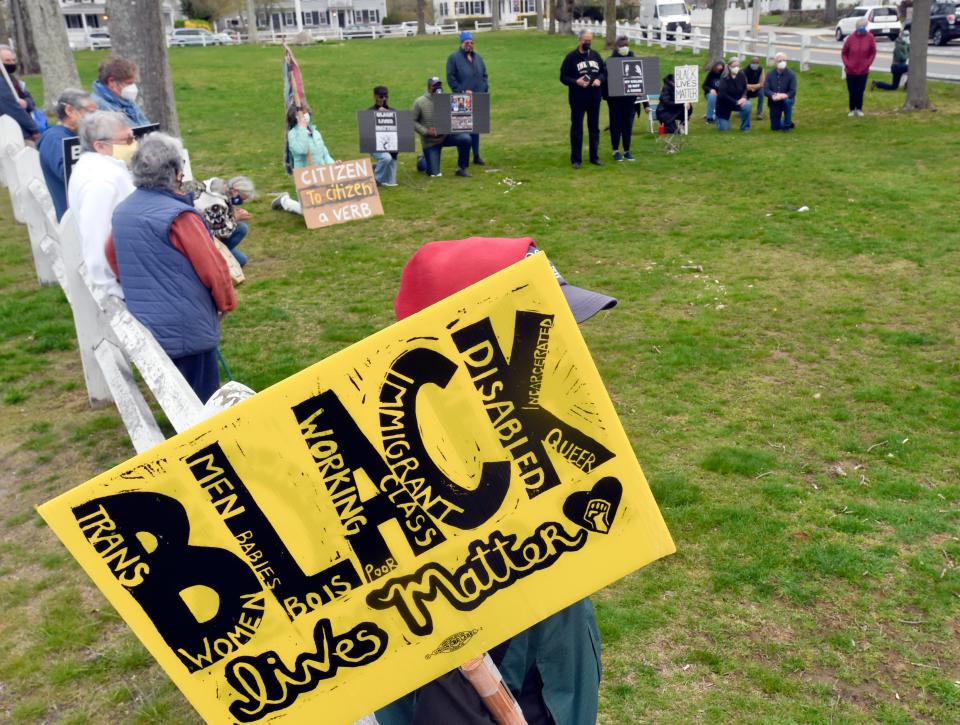As an heir to the Oscar Mayer fortune, Chuck Collins had the world at his feet. But in 1986, at age 26, Collins walked away from his family’s wealth, and gave a $500,000 inheritance to four foundations that were working for peace and justice issues at the time.
After average investment returns, said Collins, the money would equal to about $8 million in 2024.
“I don’t walk around with an Oscar Mayer wiener T-shirt on, but I also don’t hide who I am or where I come from,” said Collins. He is the great-grandson of German-born meatpacker Oskar Ferdinand Mayer, founder of the Oscar Mayer food corporation.
Collins, a program director at the Institute for Policy Studies, has also authored 10 books and will appear at 6:30 p.m., Monday, at Morse Pond School auditorium in Falmouth. The author talk, “Closing the Racial Wealth Divide and Surviving Billionaire Disruption,” is sponsored by groups like the Cape Cod Cape Verdean Museum and Cultural Center and Racial Justice Falmouth.

“I share my story to talk about how the racial wealth divide disrupts the housing market, the environment, quality of life and democracy,” said Collins.
Co-founder of the Cape Verdean Museum Barbara Burgo initially met Collins at an author talk at Lesley University in Cambridge where he gave her one of his books.
“Here’s this white man who was born with a silver spoon and he’s just standing there making so much sense and being just as modest as can be,” said Burgo. “I felt the strength in his character and the warmth in his soul.”
Who is the heir to Oscar Mayer?
Collins’ appearance in Falmouth will be his third on the Cape. He will largely share concepts from his book “Born on Third Base: A One Percenter Makes the Case for Tackling Inequality.” And he will share stories about his journey from being a part of the wealthiest 1% of the world population, to working on environmental and economic justice campaigns.
“It’s hard for each of us to say, ‘Here’s who I am,'” said Collins. “But it’s powerful to hear each other’s stories. It enables us to get past pigeonholing each other and making judgments on each other.”
Collins, who now lives in Vermont, manages a team of nine people at the Policy Institute who work on a multitude of social and racial equity campaigns that link to climate disruption, multi-generational wealth and advantages, philanthropy, the racial wealth divide, affordable housing, and billionaire wealth dynasties.
“A lot of wealth and income is going to people who have over $30 to 40 million in wealth,” said Collins. “That’s a huge concentration of power.”
Around age 25, said Collins, he began working on housing issues surrounding mobile home parks in Massachusetts. At the time, said Collins, private equity firms were beginning to buy mobile home parks and were raising tenant rents. As Collins began helping tenants form resident-owned cooperatives, his perspective on wealth and privilege began to change.
“I hadn’t thought about mobile homes before and had never even been in one,” said Collins. “That was a moment where the lottery of my birth deeply contrasted with these very hard-working people who were just trying to maintain a decent place to live and not be displaced.”


Moving the needle of privilege
For Meghan Hanawalt of Racial Justice Falmouth, Collins’ ability to acknowledge his privilege is refreshing.
“Chuck is a role model for wealthy Cape Codders. Maybe they’ll consider following his lead,” said Hanawalt.
As a white woman, Hanawalt said she is also learning to acknowledge her privilege and life advantages. That growth, she said, came through “Watch, Listen and Read Workshops” that Racial Justice Falmouth began holding five years ago.
“I’m a 62-year-old white lady and my life is so easy and I am trying to make up for lost time,” said Hanawalt.
Racial Justice Falmouth has also been holding vigils every Sunday at the Village Green at noon in remembrance of George Floyd’s murder.
“We’re trying to do what we can to make the world a better place,” said Hanawalt.
Collins’ talk, said Burgo, is part of the push that can help expose what she calls the “myth of Cape.”
“People say they are in paradise on Cape Cod. But people here are running on nickels and dimes. Food pantries can’t keep enough supplies,” said Burgo. “It’s not paradise. It’s hell for far too many people.”
Does Collins ever regret giving it all away?
Despite severing ties to his family’s wealth, Collins said he still had a “great head start,” with a debt-free college education and opportunity.
“I’ve had a mountain of privileges — four generations of access to health care, and to land and property,” he said. “Even just the opportunity to give money away is a privilege.”
Collins’ family, he said, supports his life choices.
“Not long after I made the decision to give away my money, my dad said I did the right thing,” said Collins. “He supported the fact that I wanted to make my own way.”
A moment on Cape prompts a metaphor
Several years ago, said Collins, he was camping at Nickerson State Park. One morning he decided to ride his bike along the Cape Cod Rail Trail. Initially, Collins said he was going to ride about 10 miles. But he felt strong and decided to keep going.
“I’m heading south and just feeling great,” he said. Once he hit 18 miles, he decided to turn around. All of a sudden, there was a head wind, said Collins. He realized that he was riding an invisible tail wind that had been propelling him along.
“I thought it was me. I thought I was doing all the work. Privileged people aren’t seeing that invisible tail wind,” he said. “Other people are riding into the wind no matter what they do. Whether that’s a legacy of racism, economic disadvantage, or some form of trauma.”
Racism, said Burgo, is alive and well on the Cape. “Most people just ignore it,” she said.
“As a person of color on the Cape, you feel weathered — like you’ve been in the rain,” said Burgo. “I can’t get up and go about my day without having to address racism in some capacity.”
But Collins, she said, has put it all on the line to bring equity to all people.
“Chuck will inspire a groundswell of people to care about each other,” she said. “He has quite literally put his money where his mouth is.”
Rachael Devaney writes about community and culture. Reach her at [email protected]. Follow her on Twitter: @RachaelDevaney.
The Cape Cod Times is providing this coverage for free as a public service. Please take a moment to support local journalism by subscribing.
This article originally appeared on Cape Cod Times: Oscar Mayer heir Chuck Collins gave wealth away. Talk on Cape Monday.
Source Agencies


